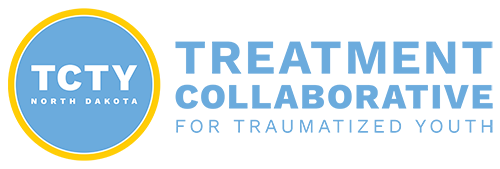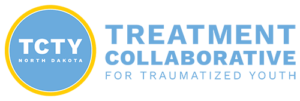There are several trauma-specific and evidence-based treatments. Following an assessment, a clinician will recommended the best treatment to address the trauma and associated symptoms. The following are some treatments for children and adolescents:
Trauma-Focused Cognitive Behavioral Therapy (TF-CBT; Cohen, Deblinger & Mannarino, 2004) is an evidence-based treatment for children and adolescents ages 3–18. TF-CBT integrates cognitive behavioral techniques with trauma-specific interventions.
The model has been researched in numerous randomized clinical trials and is considered the “best practice” model for reducing traumatized children’s emotional and behavioral problems. Children and families who receive TF-CBT meet weekly with a therapist, both individually and jointly. The treatment typically lasts 12–20 sessions.
For more information about TF-CBT click here.
Child and Family Traumatic Stress Intervention (CFTSI; Marans & Epstein, 2011) is a brief early intervention model for children and adolescents ages 7–17. CFTSI is implemented soon after exposure to a potentially traumatic event, or in the wake of a disclosure of physical and sexual abuse.
CFTSI focuses on increasing communication between the affected child and caregiver about feelings, symptoms, and behaviors, with the aim of increasing the caregivers’ support of the child; and by teaching specific behavioral skills to both the caregiver and the child to enhance their ability to cope with traumatic stress reactions. The treatment typically lasts 5–8 sessions.
For more information about CFTSI click here.
Alternatives for Families: A Cognitive Behavioral Therapy (AF-CBT; Kolko, Brown, Shaver, Baumann & Herschell, 2011) is a trauma-informed, evidence-based treatment designed to improve the relationship between children and caregivers in families where there is a history of excessive physical force/discipline, physical child abuse, frequent conflict, and/or child behavior problems.
AF-CBT is provided for 1–2 times per week over the course of 6–12 months. During AF-CBT, school-aged children ages 5–17 and their caregivers participate in separate but coordinated therapy sessions, often using parallel treatment materials. In addition, children and caregivers attend joint sessions together at various times throughout treatment.
For more information about AF-CBT click here.
Problem Sexual Behaviors Cognitive Behavior Therapy (PSB-CBT; Swisher, Widdifield, & Silovsky, 2013) is a trauma-informed, evidence-based treatment designed to reduce or eliminate incidents of problematic sexual behavior in children ages 12 and under.
PSB-CBT is a family-oriented, cognitive-behavioral, psychoeducational, and supportive treatment group. This program involves the family or other support systems in the child’s treatment and requires weekly caregiver attendance and active participation, monitoring, and support of the child’s application of skills between sessions. It also requires an ongoing assessment of the child’s progress in treatment.
Research has shown that children who participate in PSB-CBT are less likely than the general population to re-offend. PSB-CBT is appropriate for kids ages 7–13 and their non-offending parents. The group treatment consists of 18 sessions.
For more information about PSB-CBT click here.
Parent-Child Interaction Therapy (PCIT; Eyberg et al., 2001) is an evidence-based treatment for children ages 2–8 years with disruptive behavior disorders. It has been further developed to address the emotional, behavioral, and relationship problems that are commonly seen among maltreated children and their caregivers (Urquiza and McNeil, 1996).
Both caregivers and children participate together in PCIT. An abundance of research exists showing the efficacy of PCIT in reducing children’s behavioral problems. This treatment lasts approximately 20 sessions.
For more information about PCIT click here.
Child Parent Psychotherapy (CPP; Lieberman & Van Horn, 2005) is an evidence-based treatment for children ages 0–5 who have experienced at least one traumatic event and are experiencing mental health, attachment, and/or behavioral problems, including post-traumatic stress disorder (PTSD).
The treatment is based on attachment theory, but it also integrates psychodynamic, developmental, trauma, social learning, and cognitive behavioral theories. Sessions include the child and parent or primary caregiver.
The primary goal of CPP is to support and strengthen the relationship between a child and his or her caregiver as a vehicle for restoring the child’s cognitive, behavioral, and social functioning. Treatment also focuses on contextual factors that may affect the caregiver-child relationship. Treatment averages 50 sessions.
For more information about CPP click here.
Structured Psychotherapy for Adolescents Responding to Chronic Stress (SPARCS; DeRosa, Habib, et al., 2005) is an evidence-based treatment for chronically traumatized adolescents experiencing ongoing stress and difficulties functioning. The intervention is for individuals ages 12-21. The group intervention aims to help adolescents cope more effectively in the moment, enhance self-efficacy, connect with others and establish supportive relationships, cultivate awareness, and create meaning in their lives. Core components of this intervention include Mindfulness Practice, Relationship Building & Communication Skills, Distress Tolerance, and Problem-Solving and Meaning Making. Treatment also includes psychoeducation regarding stress, trauma, and trauma triggers. It is a 16-week group intervention.
For more information about SPARCS click here.
Honoring Children, Mending the Circle (HC-MC; Bigfoot & Schmidt, 2006) is a cultural adaptation of the evidenced-based treatment TF-CBT to support American Indian and Alaska Native (AI/AN) cultural views of well-being. HC-MC is appropriate for most types of trauma and for children 3-18. The framework for HC-MC is the circle. For many indigenous people, the circle is a sacred symbol that has long been used to understand the world. HC-MC has adopted core constructs based on AI/AN worldviews: (a) all things are interconnected, (b) all things have a spiritual nature, and (c) existence is dynamic. Central to wellness and healing is the core AI/AN belief that all things, human and earth, have a spiritual nature. HC-MC defines well-being as balance and harmony both within and among one’s spiritual, relational, emotional, mental, and physical dimensions. HC-MC maintains the components of TF-CBT within the context of the circle. The HC-MC adaptation seeks to honor what makes American Indians and Alaska Natives culturally unique through respecting the beliefs, practices, and traditions within their families, communities, tribes, and villages that are inherently healing. Treatment typically lasts 16-25 sessions.
Seeking Safety (Najavits, 2002) is a present-focused, coping skills therapy to help adolescents attain safety from co-occurring trauma and substance abuse. The treatment is presented in either a group or individual format.
Seeking Safety for adolescents is conducted with youth ages 12–17. Seeking Safety consists of 25 topics, such as Safety, Asking for Help, Setting Boundaries in Relationships, Healthy Relationships, and Coping with Triggers.
For more information about Seeking Safety click here.



